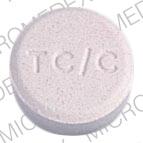Tylenol Cold Interactions
There are 688 drugs known to interact with Tylenol Cold (acetaminophen/chlorpheniramine/dextromethorphan/pseudoephedrine), along with 13 disease interactions, and 2 alcohol/food interactions. Of the total drug interactions, 103 are major, 565 are moderate, and 20 are minor.
- View all 688 medications that may interact with Tylenol Cold
- View Tylenol Cold alcohol/food interactions (2)
- View Tylenol Cold disease interactions (13)
Most frequently checked interactions
View interaction reports for Tylenol Cold (acetaminophen / chlorpheniramine / dextromethorphan / pseudoephedrine) and the medicines listed below.
- acetaminophen
- Advil (ibuprofen)
- albuterol
- alprazolam
- amlodipine
- amoxicillin
- atorvastatin
- azithromycin
- Benadryl (diphenhydramine)
- celecoxib
- cetirizine
- Claritin (loratadine)
- cyclobenzaprine
- gabapentin
- hydroxyzine
- ibuprofen
- levothyroxine
- loratadine
- melatonin
- naproxen
- omeprazole
- pantoprazole
- Pepto-Bismol (bismuth subsalicylate)
- prednisone
- propranolol
- spironolactone
- Tylenol (acetaminophen)
- Tylenol Extra Strength (acetaminophen)
- Vitamin C (ascorbic acid)
- Vitamin D3 (cholecalciferol)
Tylenol Cold alcohol/food interactions
There are 2 alcohol/food interactions with Tylenol Cold (acetaminophen / chlorpheniramine / dextromethorphan / pseudoephedrine).
Tylenol Cold disease interactions
There are 13 disease interactions with Tylenol Cold (acetaminophen / chlorpheniramine / dextromethorphan / pseudoephedrine) which include:
- alcoholism
- liver disease
- cardiovascular disease
- PKU
- anticholinergic effects
- asthma/COPD
- cardiovascular
- renal/liver disease
- GI narrowing
- PKU
- BPH
- diabetes
- glaucoma
More about Tylenol Cold (acetaminophen / chlorpheniramine / dextromethorphan / pseudoephedrine)
- Tylenol Cold consumer information
- Compare alternatives
- Reviews (1)
- Drug images
- Side effects
- Dosage information
- Drug class: upper respiratory combinations
Related treatment guides
Drug Interaction Classification
| Highly clinically significant. Avoid combinations; the risk of the interaction outweighs the benefit. | |
| Moderately clinically significant. Usually avoid combinations; use it only under special circumstances. | |
| Minimally clinically significant. Minimize risk; assess risk and consider an alternative drug, take steps to circumvent the interaction risk and/or institute a monitoring plan. | |
| No interaction information available. |
Further information
Always consult your healthcare provider to ensure the information displayed on this page applies to your personal circumstances.


